*Published with the generous permission of David Pepper. Read and watch his excellent work at Pepperspectives.
By David Pepper
Boy do I have a story to tell you!
After watching just how many Americans were traveling the country to get themselves into the predicted “zone of totality”….
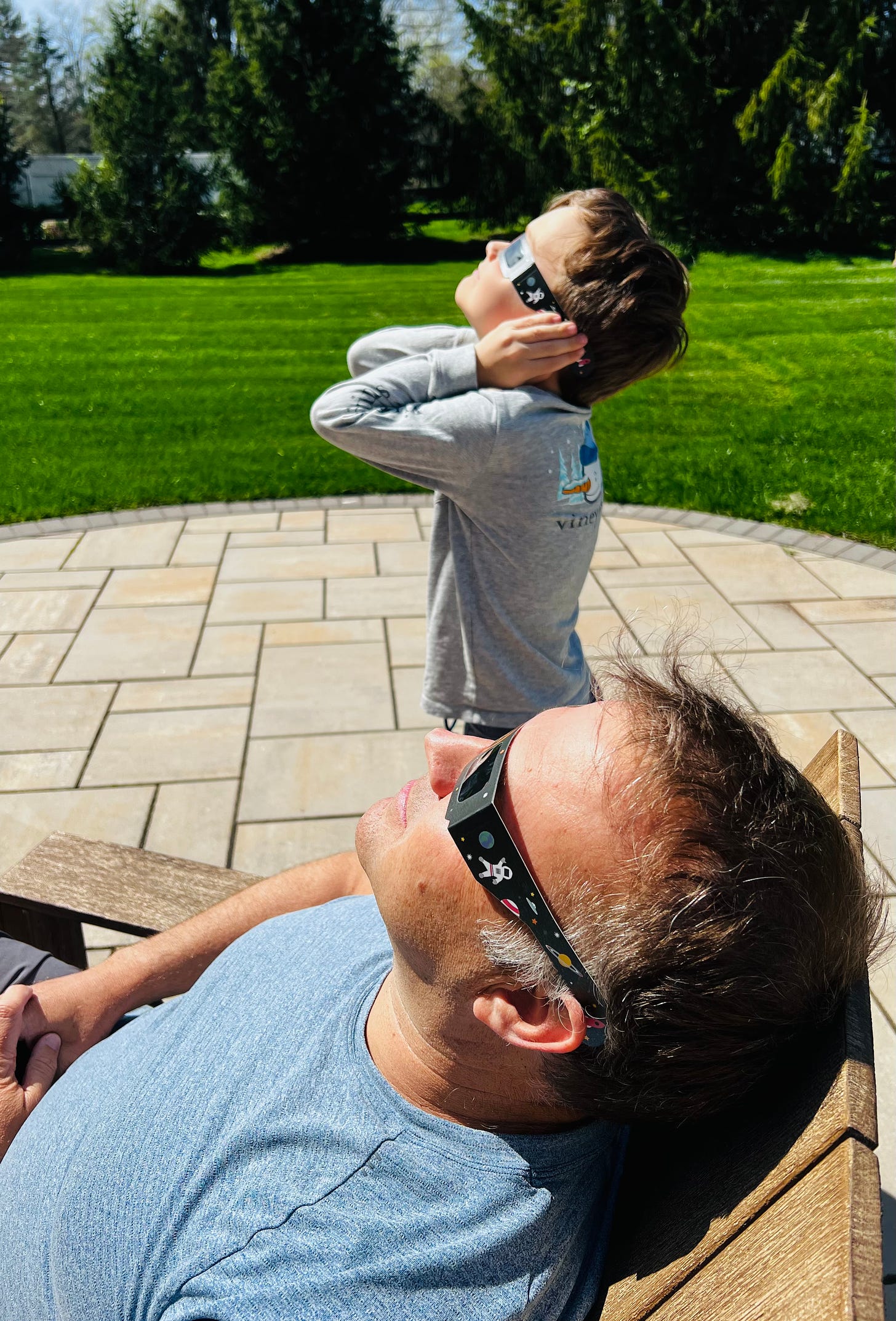
Now I admit — I meant the question rhetorically.
But wow did I get my answer.
In fact, even though I ask and opine a lot on Twitter, this simple question triggered a response unlike any other in all my years on social media. Within hours, something about the way I worded it transported me directly into a world I had never encountered before.
To give you a sense of it, the tweet has now been viewed more than 1.1 million times.
On the positive side, it was “liked” more than 12,000 times. And was retweeted more than 3,500 times.
But it also generated more than 8,700 responses(!) (so my official ratio is still above 1, at least).
And in a way I hadn’t intended, those thousands of responses did answer my question.
Here’s a small taste of what came back:
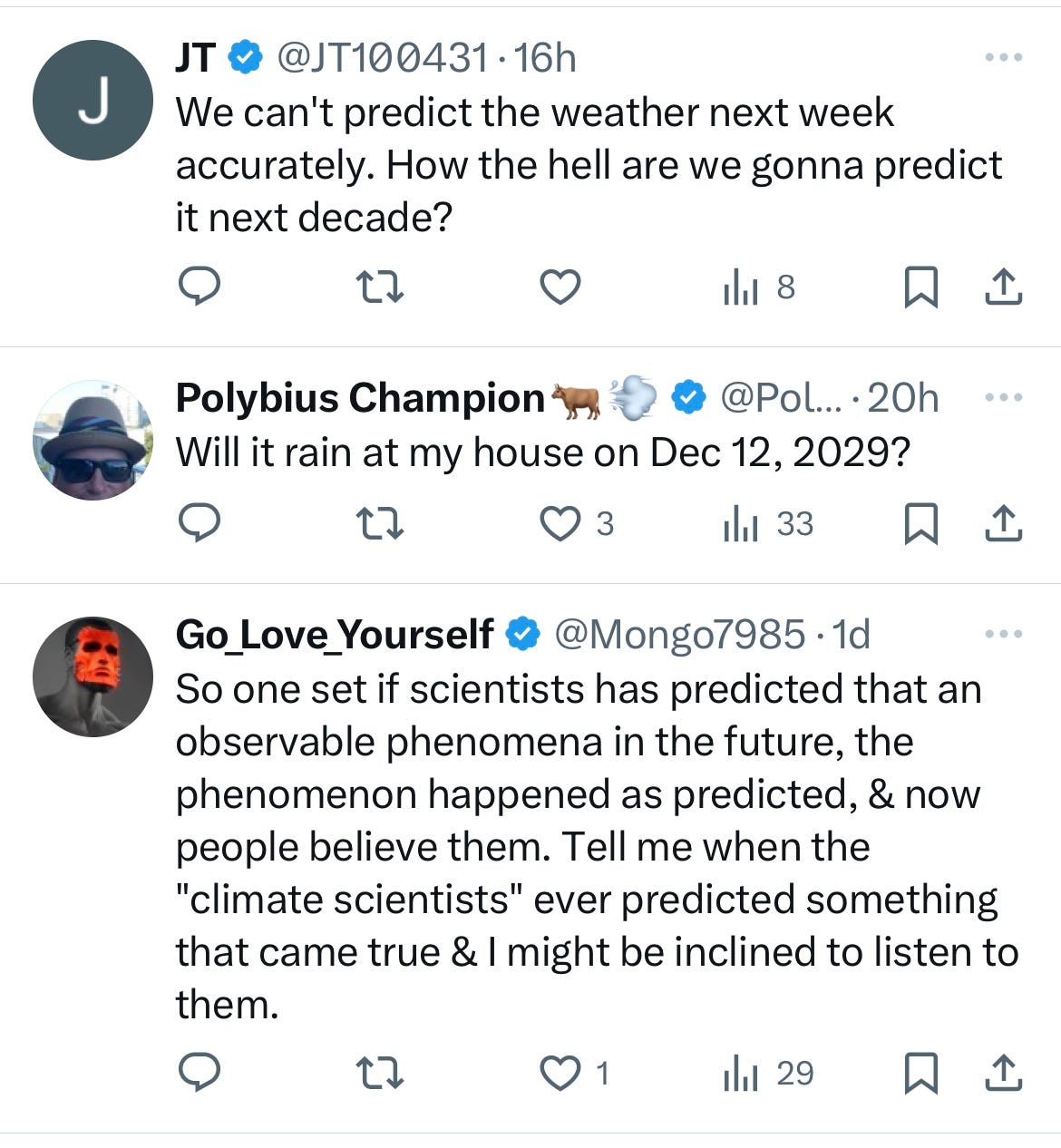
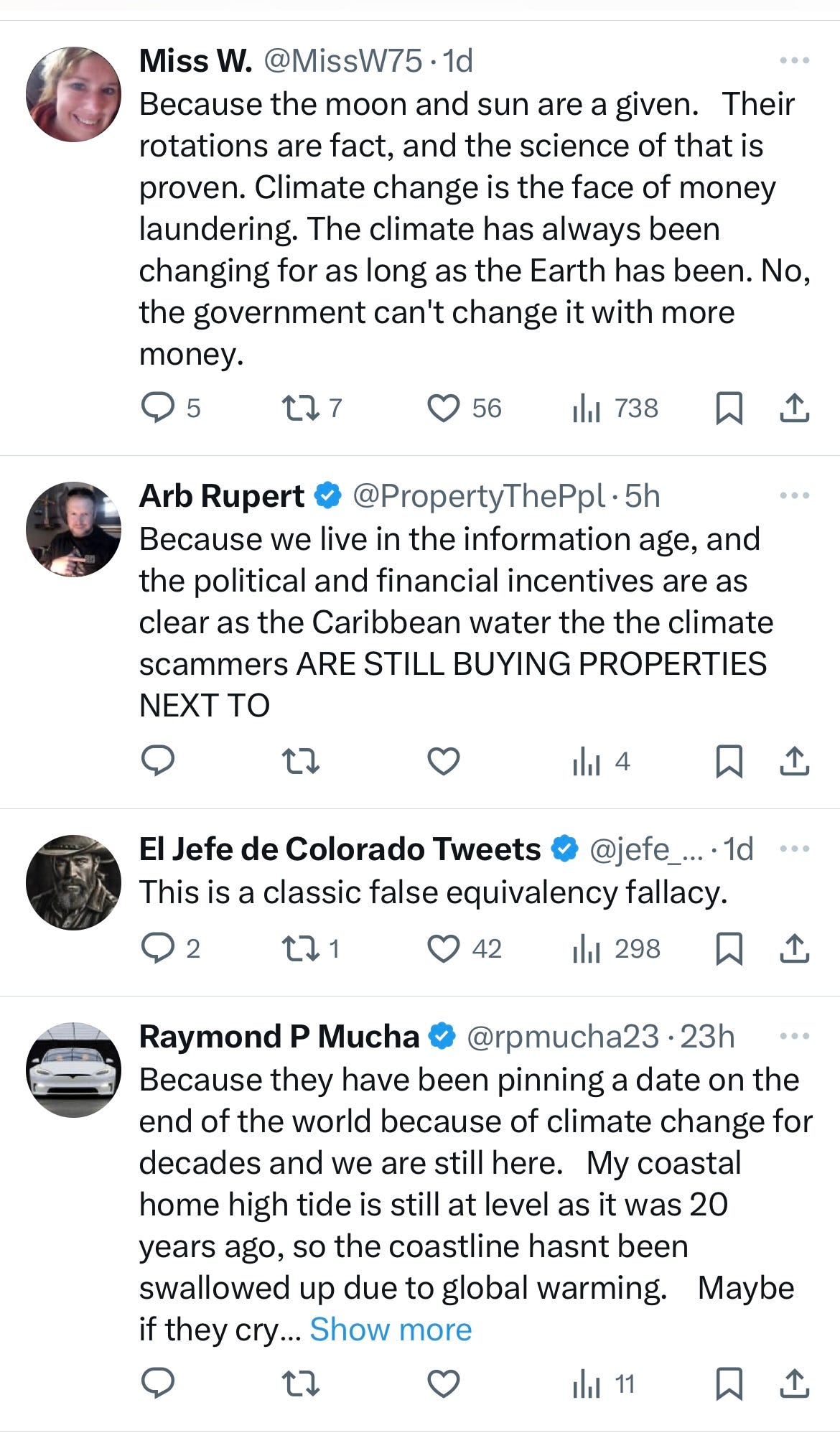
Let me start off by acknowledging that when I asked the question (yes, a little flippantly), I certainly understood that the science that tracks the paths of the moon, sun and earth is a different field than the science that tracks our planet’s climate. (In fact, I took and enjoyed courses on both in college). A fraction of the answers pointed out those distinctions. Fair enough. But my point, of course, was about science more generally.
And a handful of folks who are troubled by a warming climate (and clearly believe man is contributing to it) speculated that years of corporate investment in climate denialism and junk science has convinced many people not to take climate change seriously, or worse. (What comes next may prove them right).
But those two types of answers were overwhelmed by the rest of the machine-gun fire of commentary (and insults) that came at me fast(ly) and furiously. They’re still coming three days later. A veritable avalanche. Thousands, complete with GIFs and charts and graphics and a good deal of hostility.
Like a good scientist would, let me categorize them for you, with examples, so you get a sense of the answers:
The first set of answers is that the theory of climate change is simply made up. False. A hoax. That’s it:

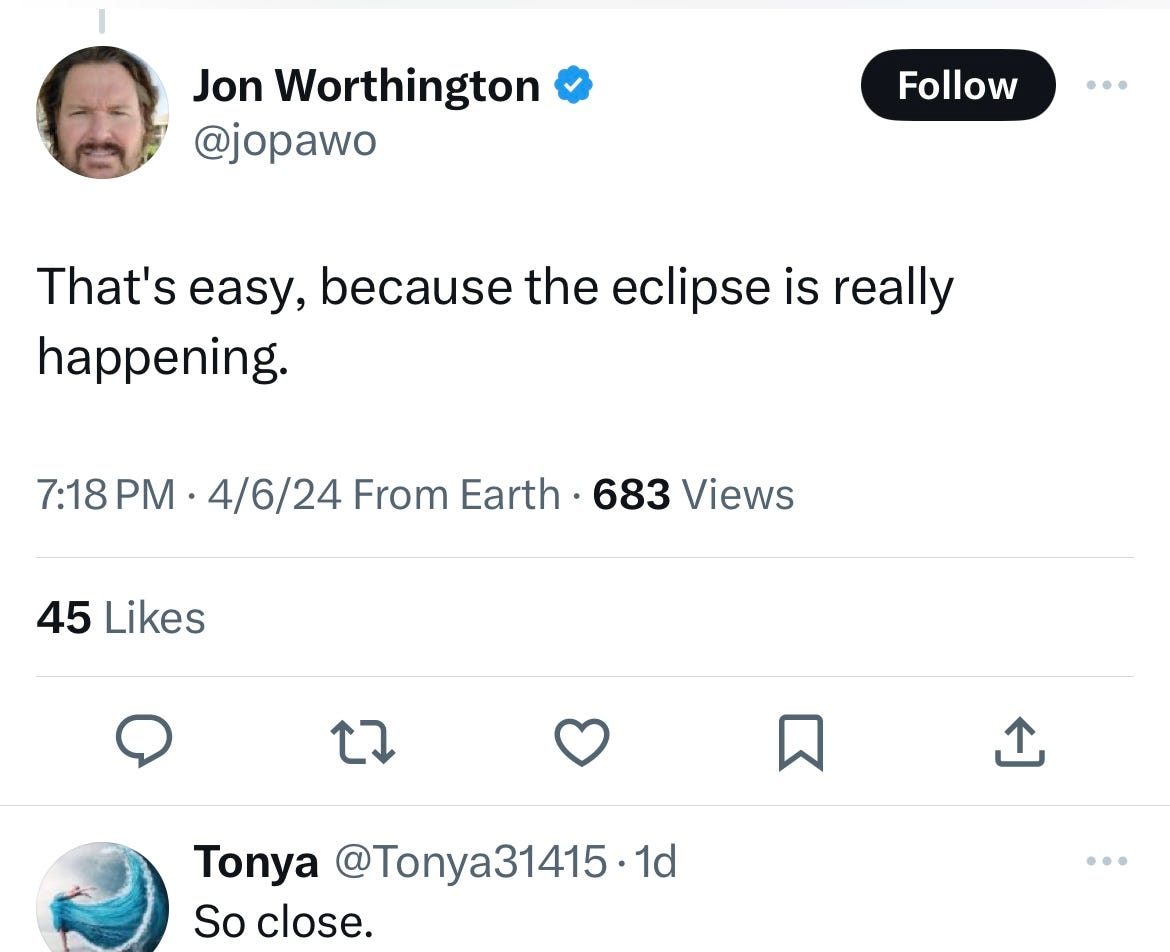
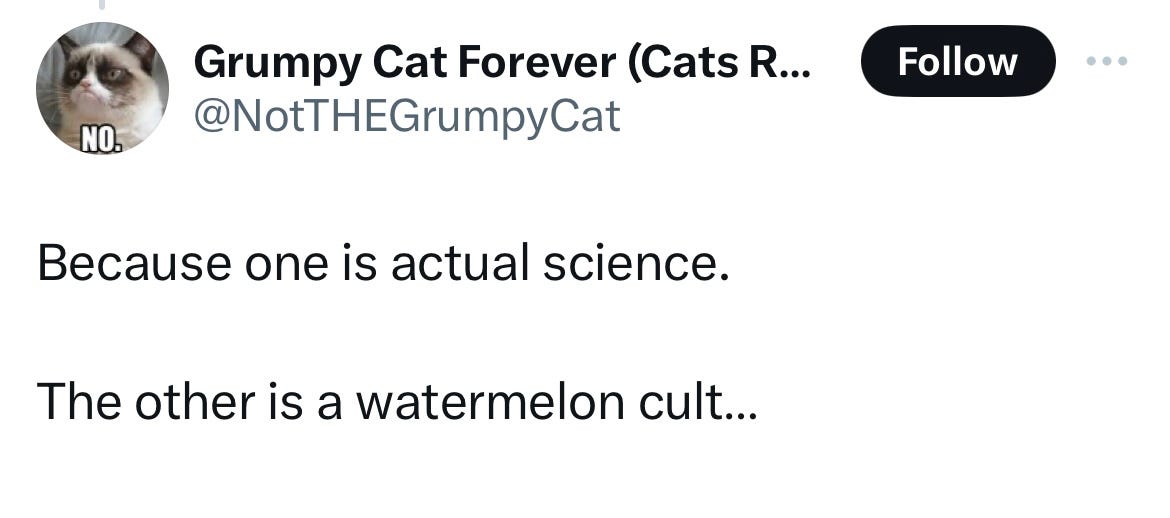

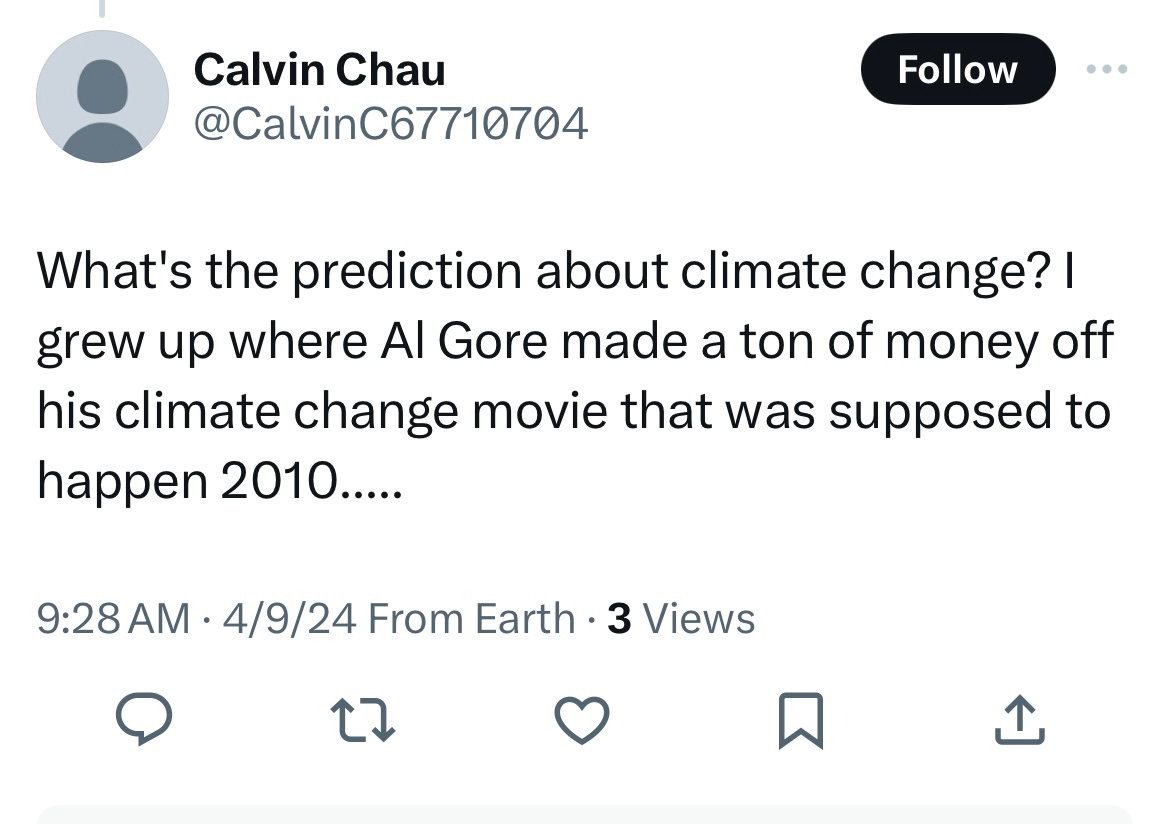
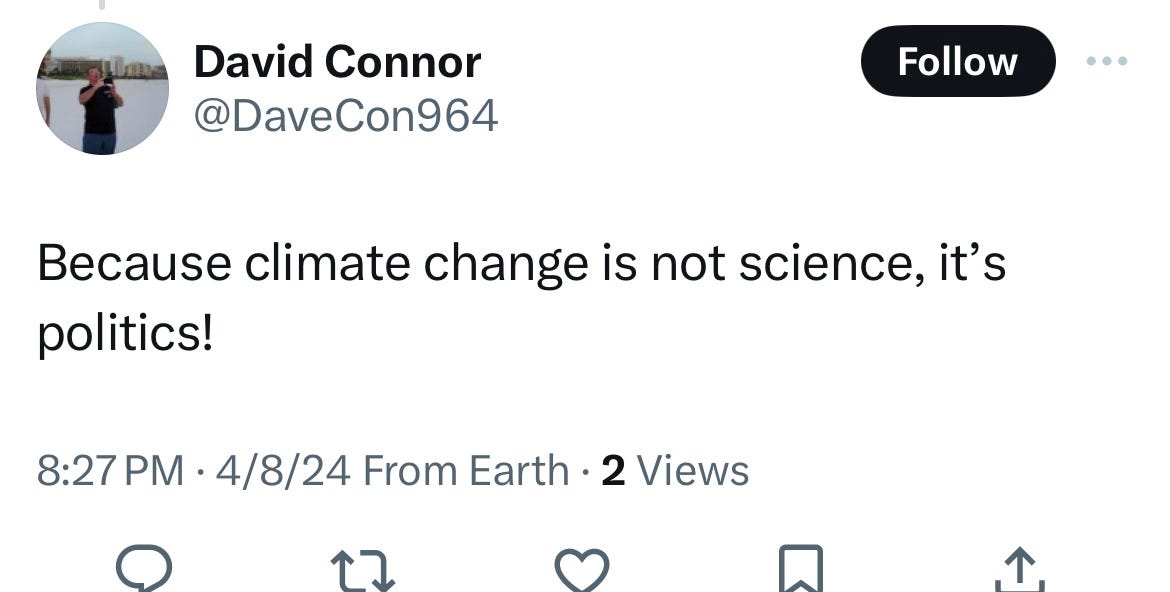
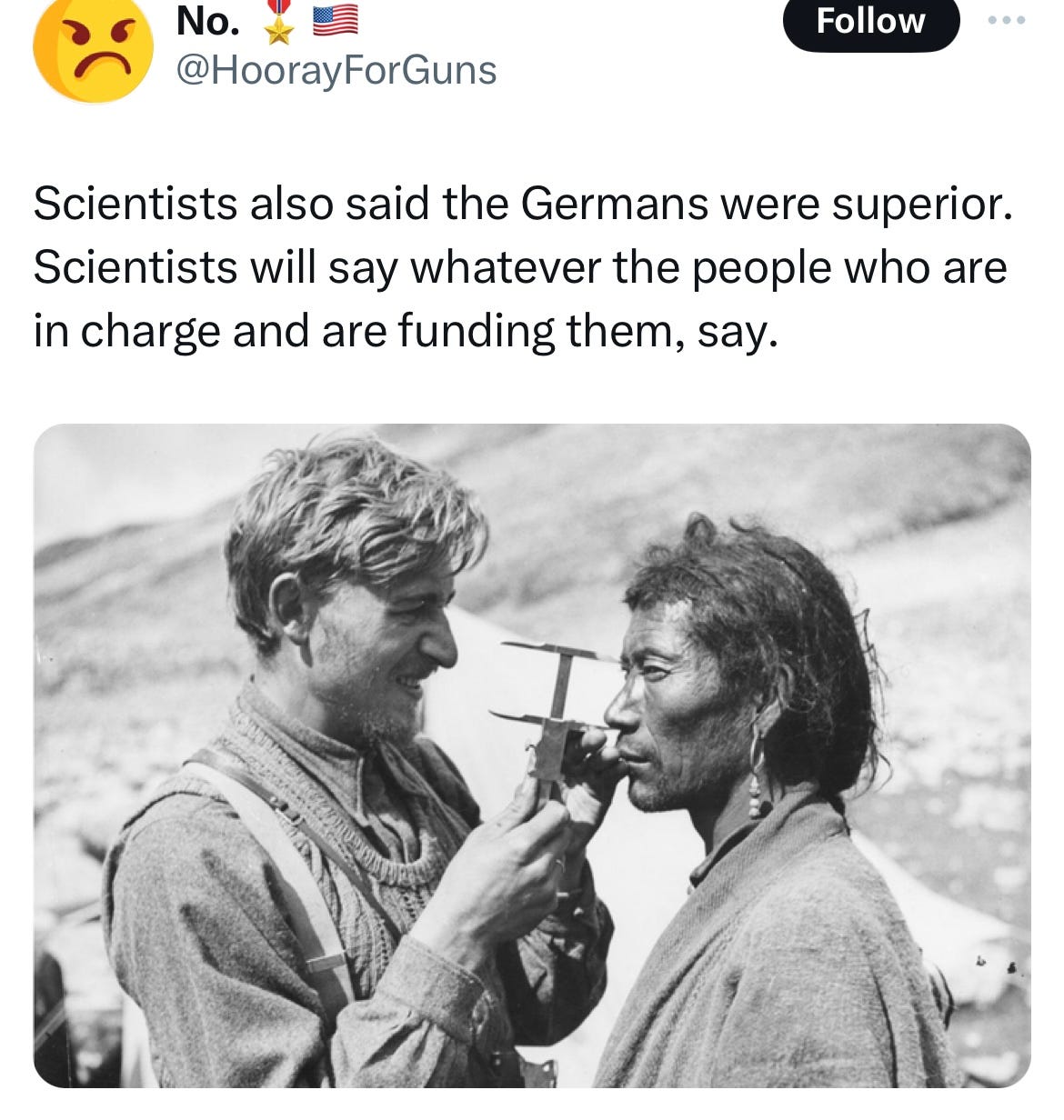

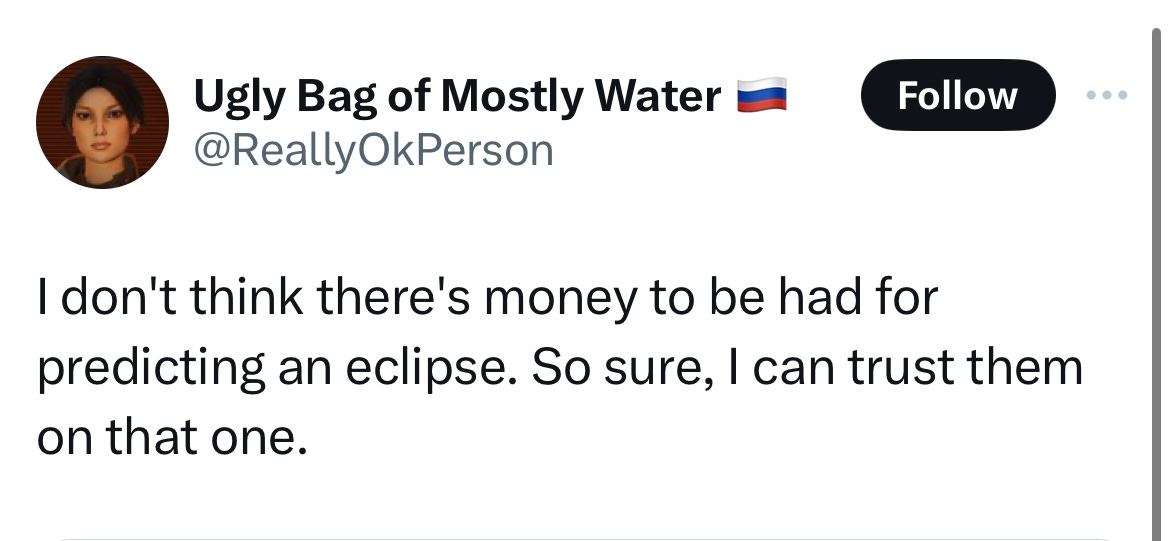
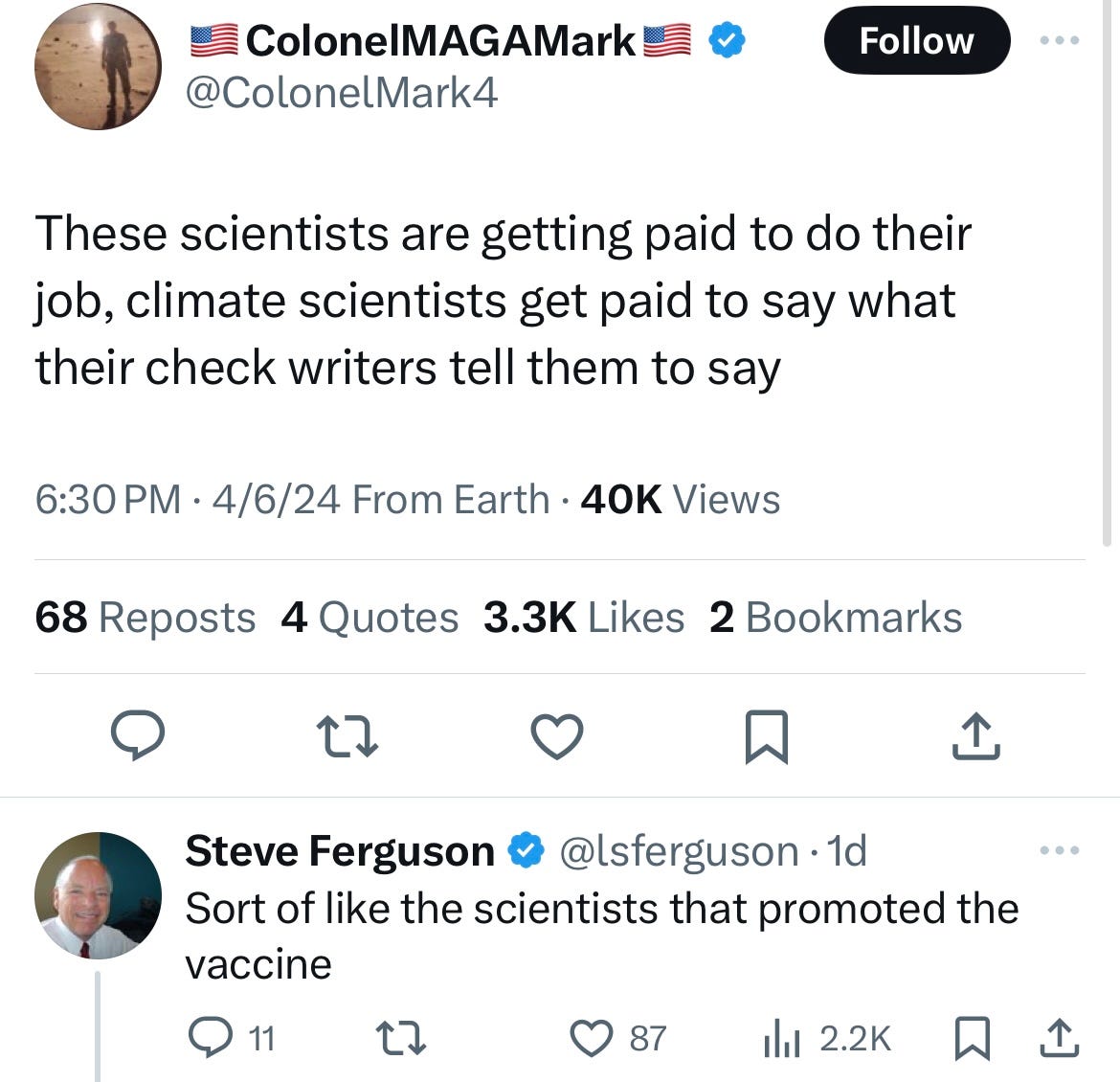
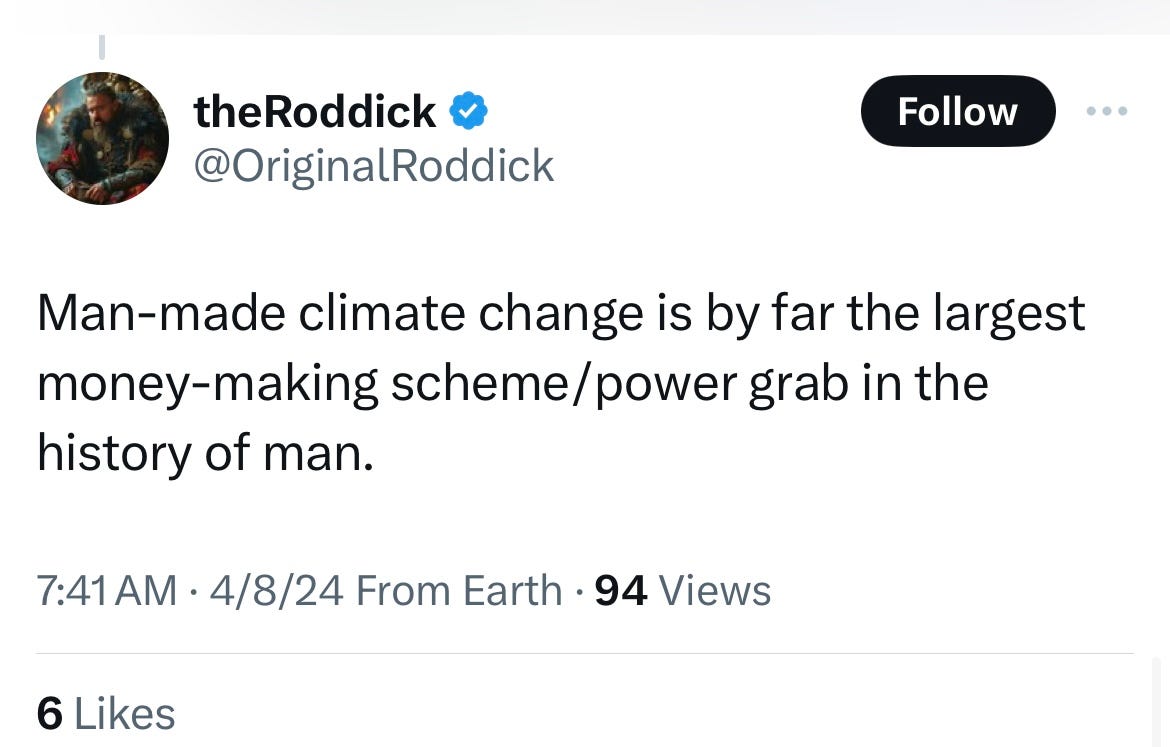

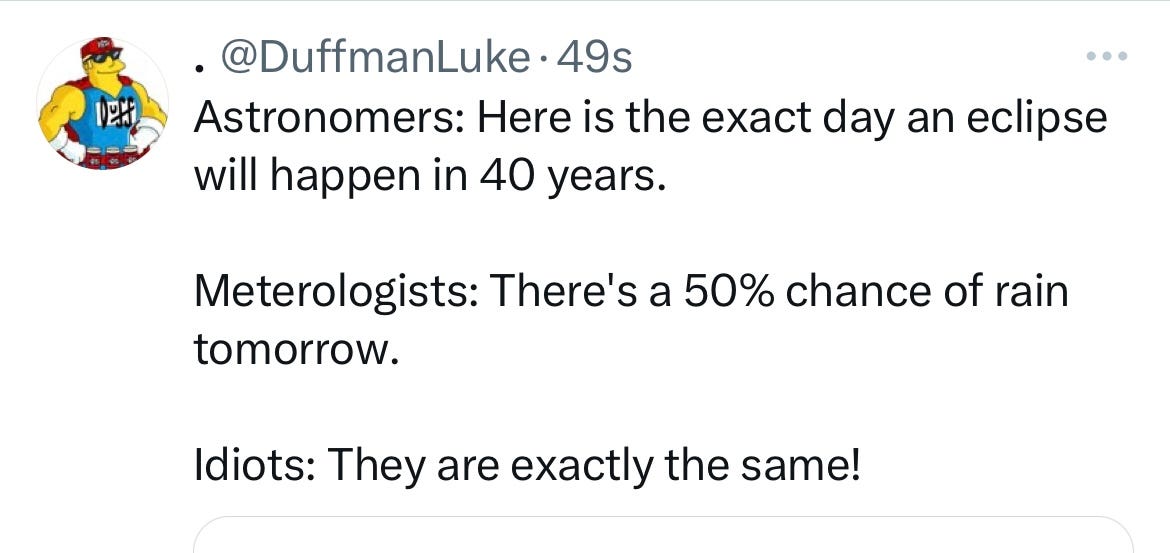
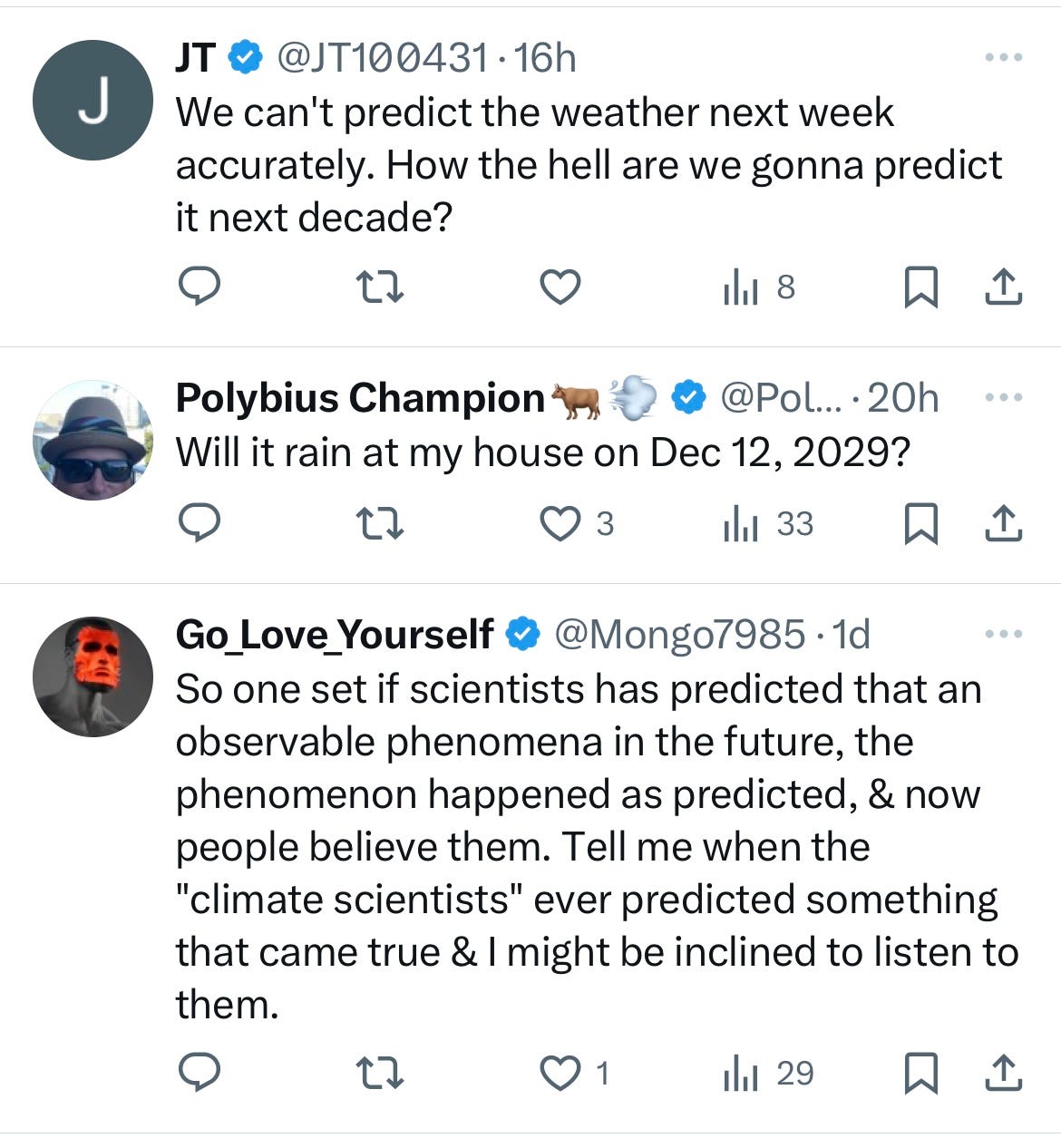
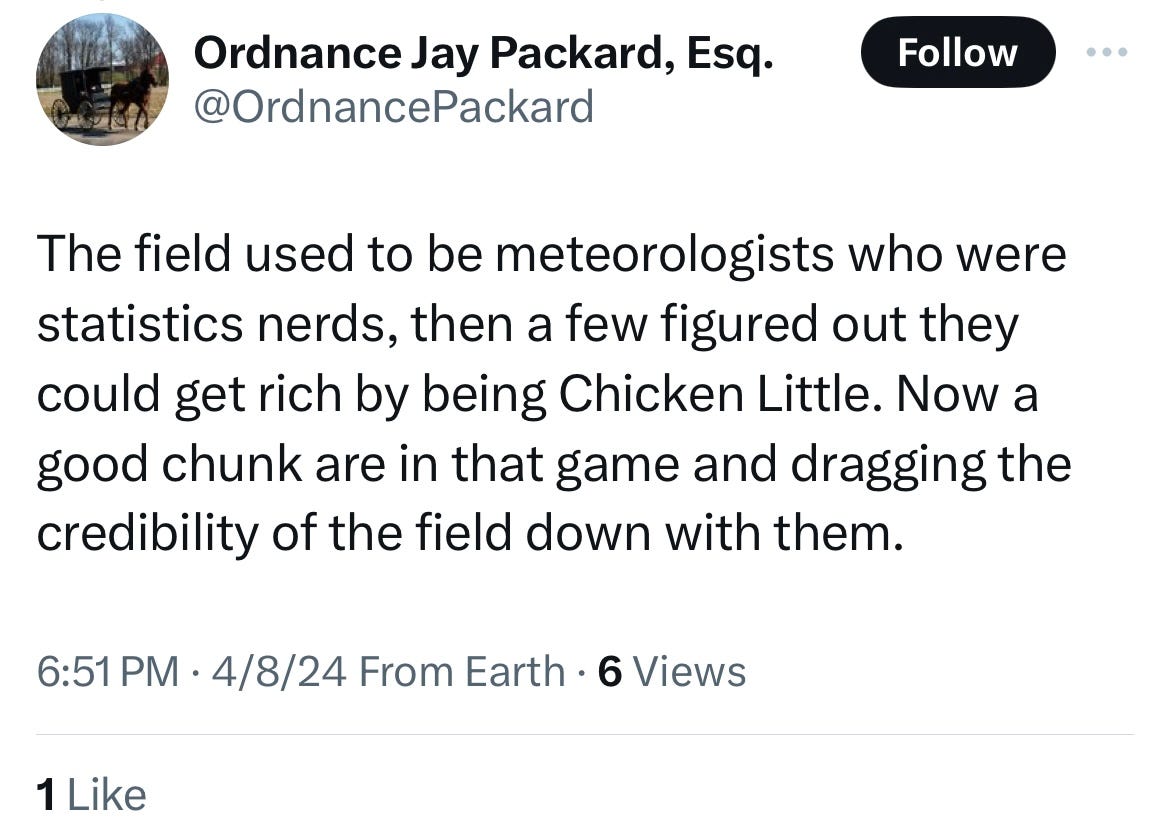

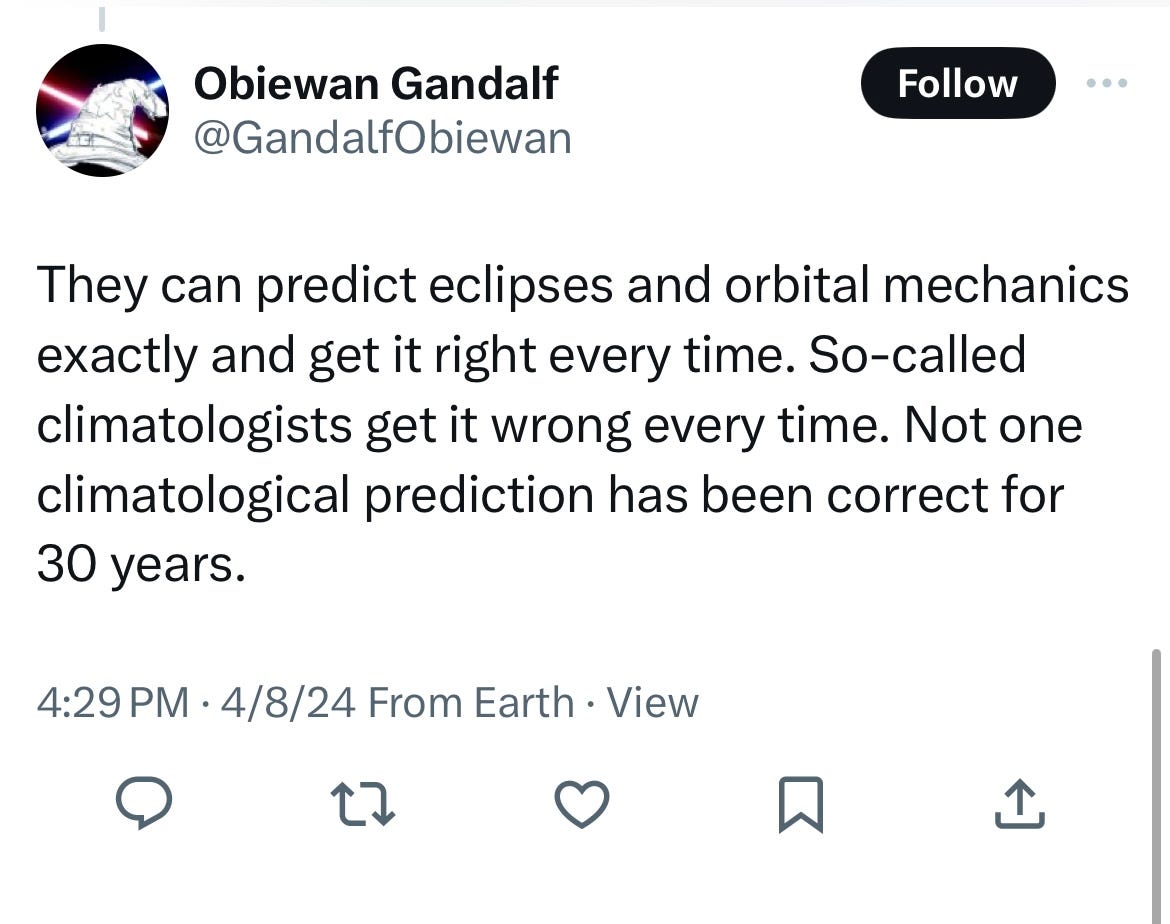
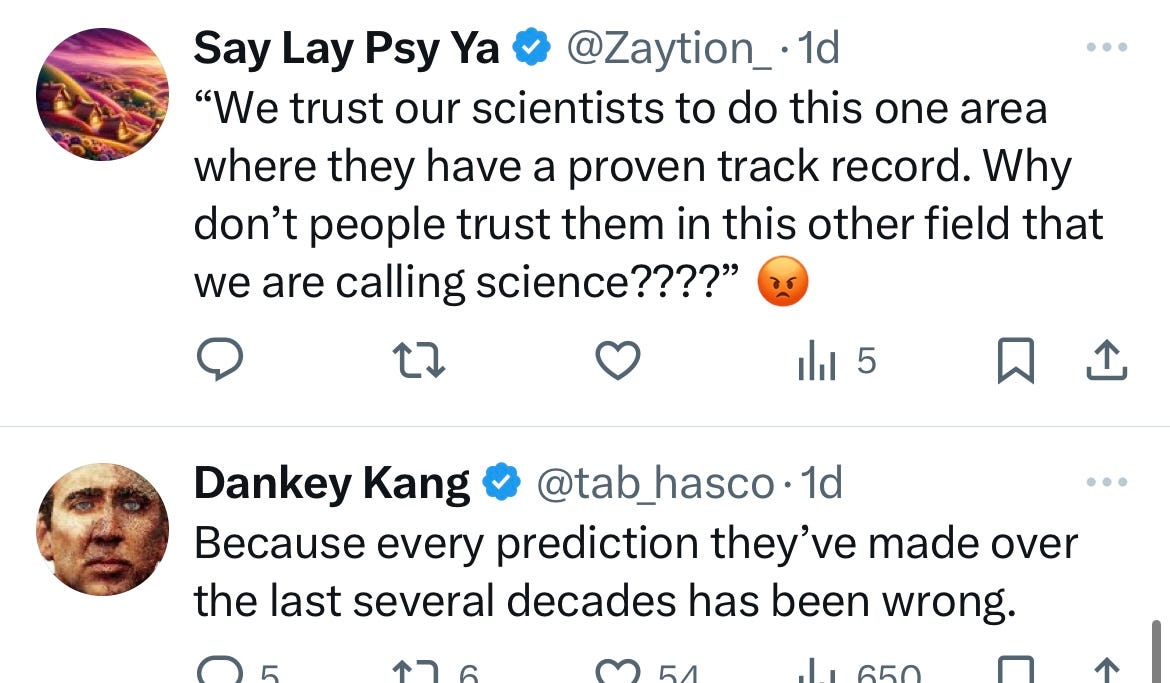
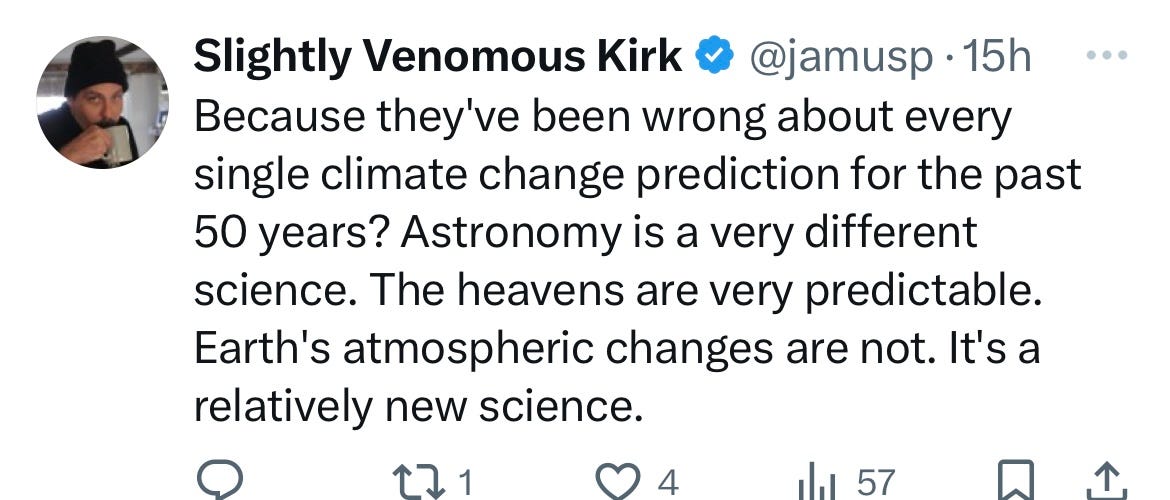

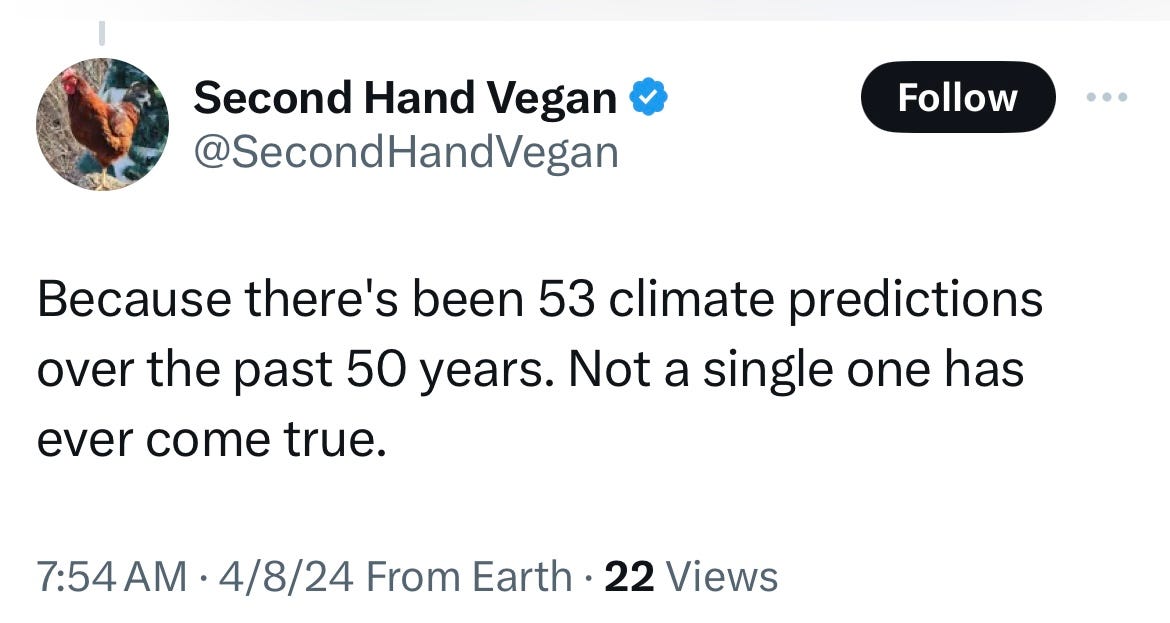

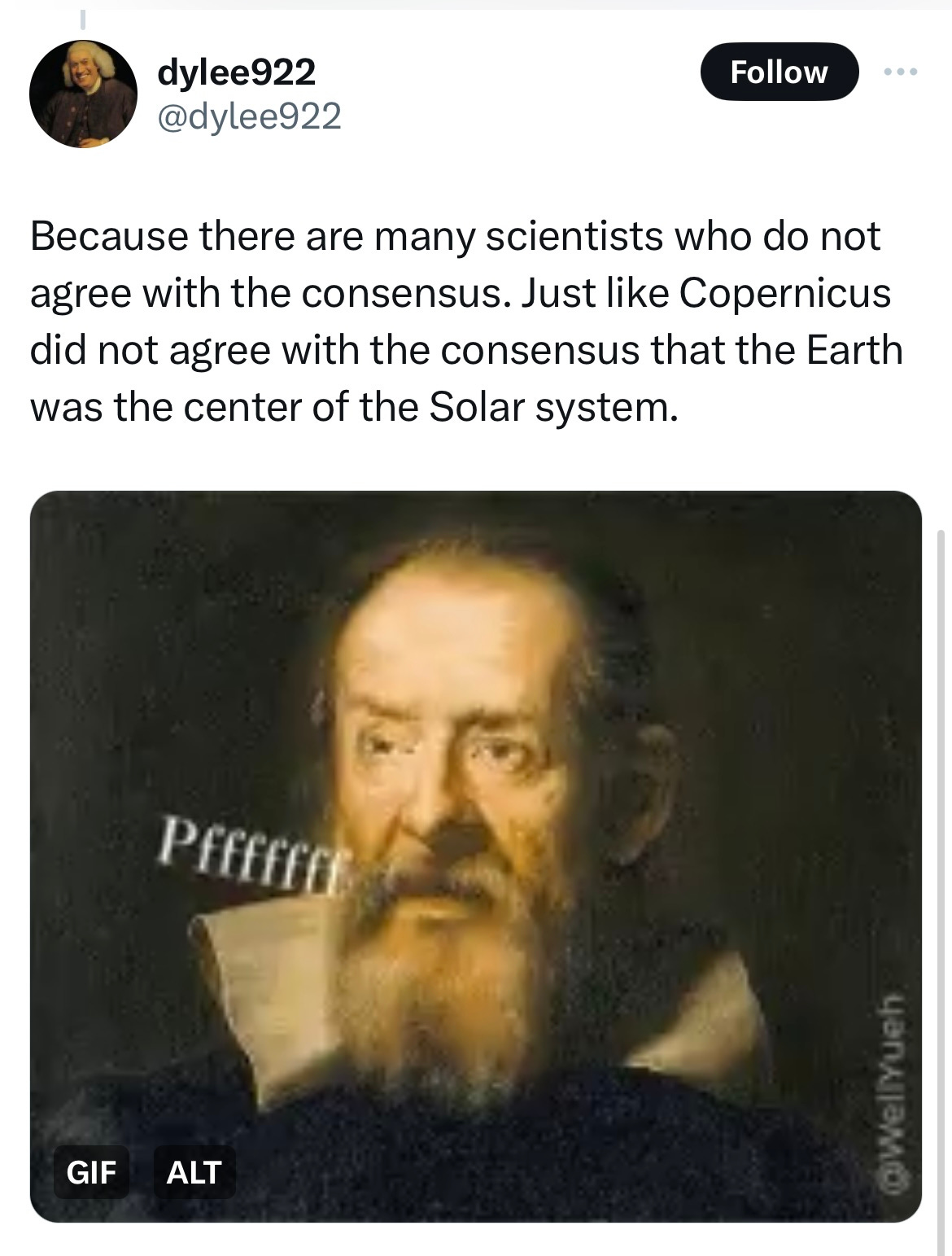

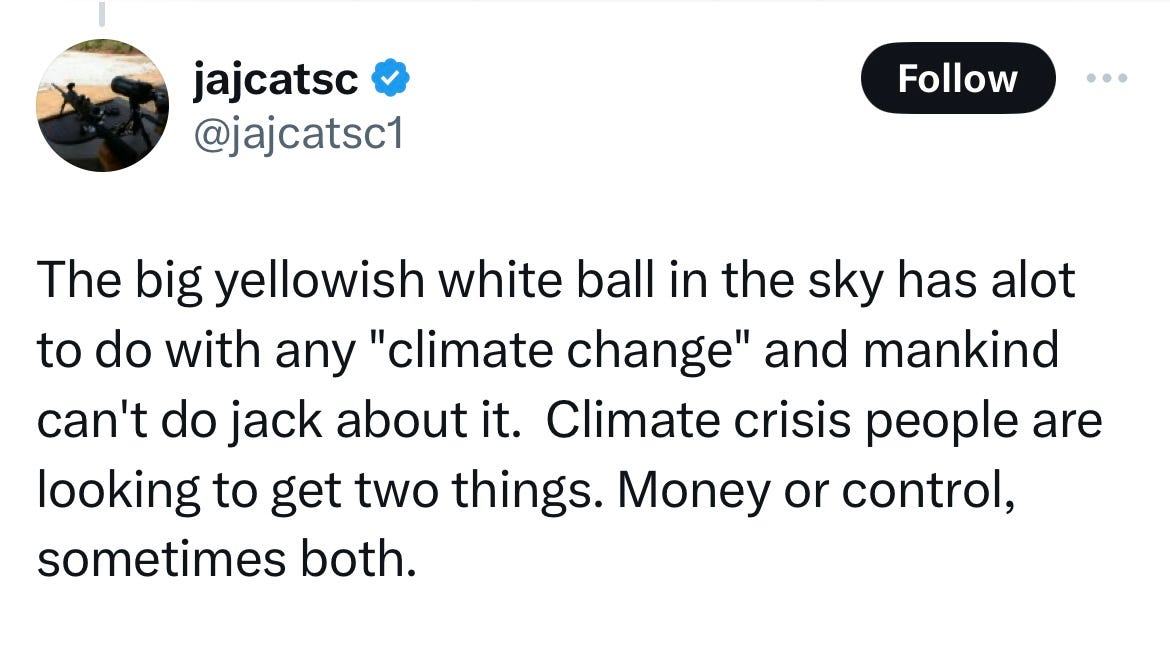

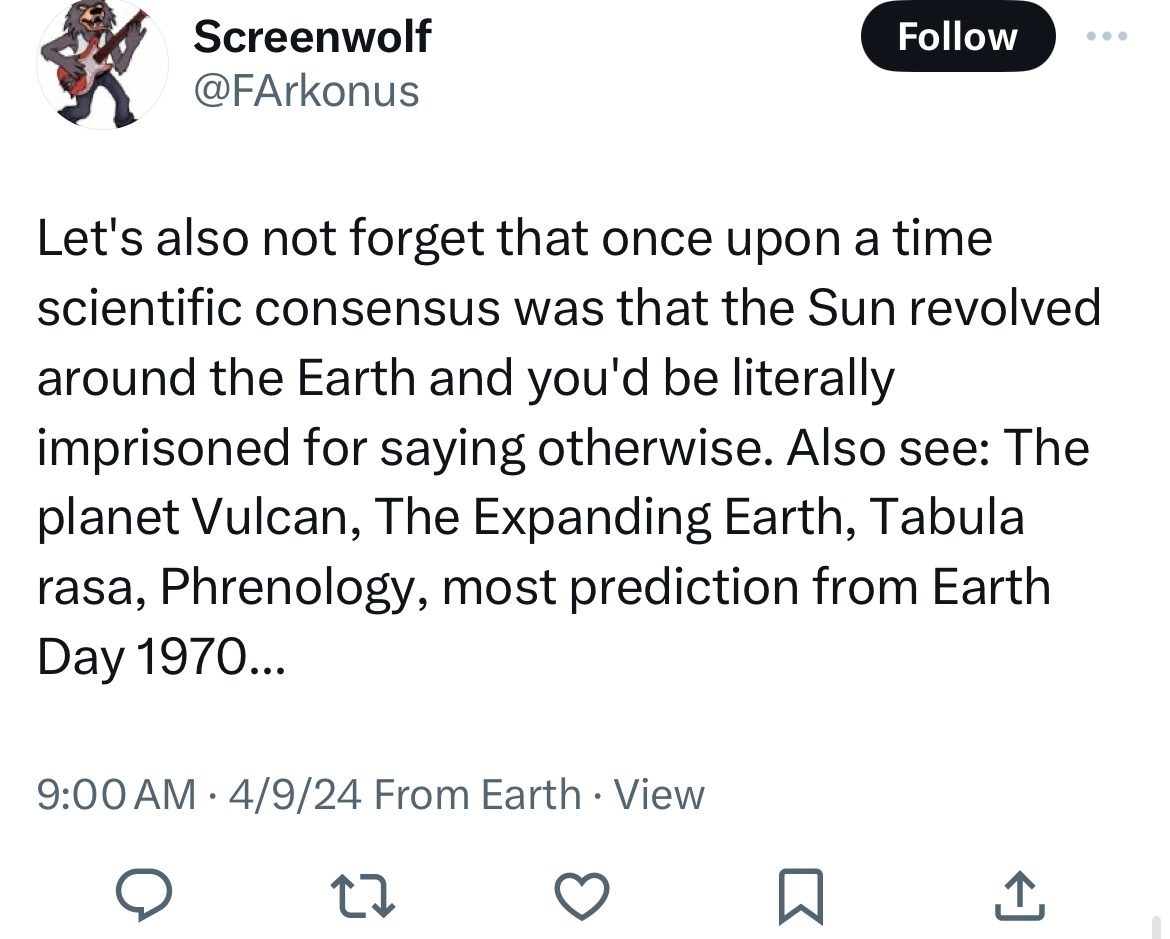
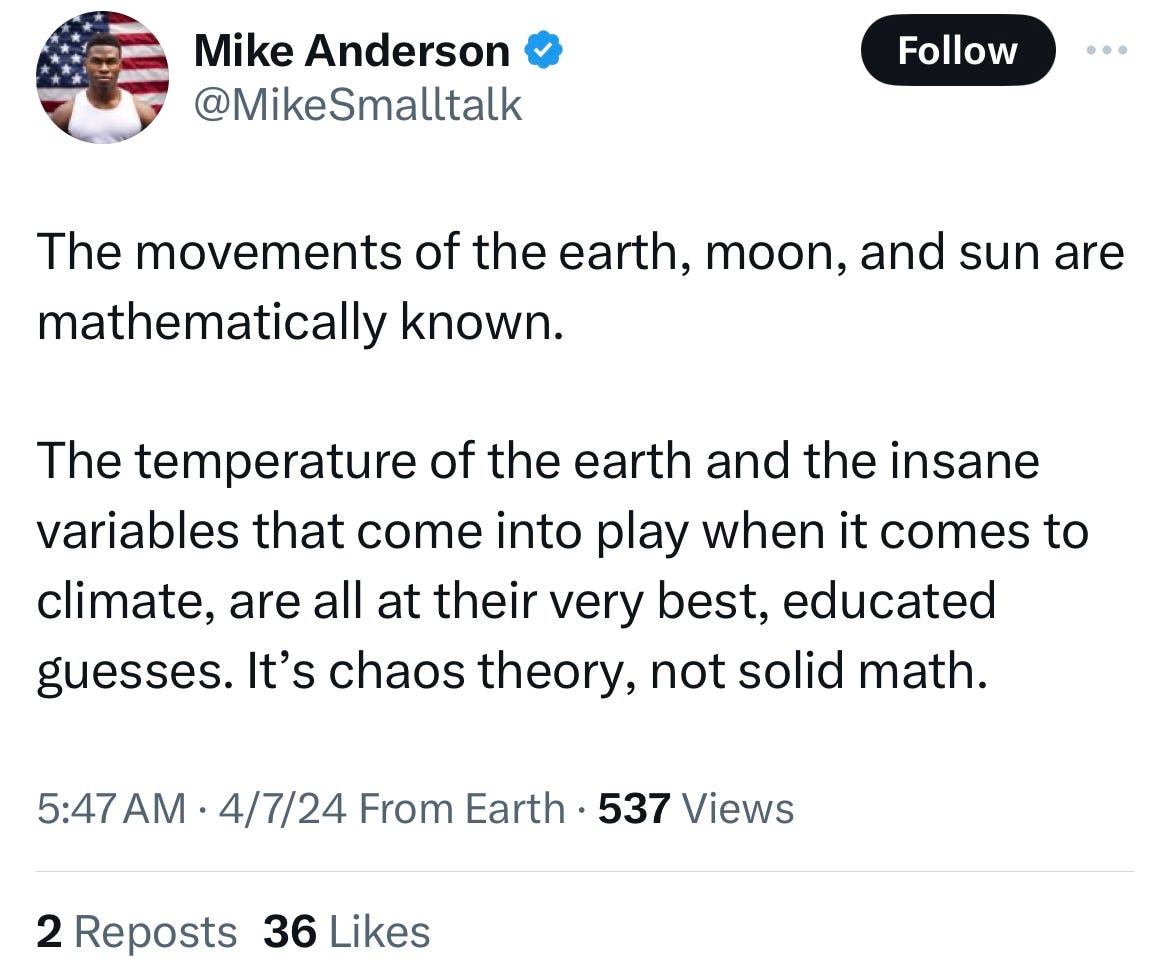

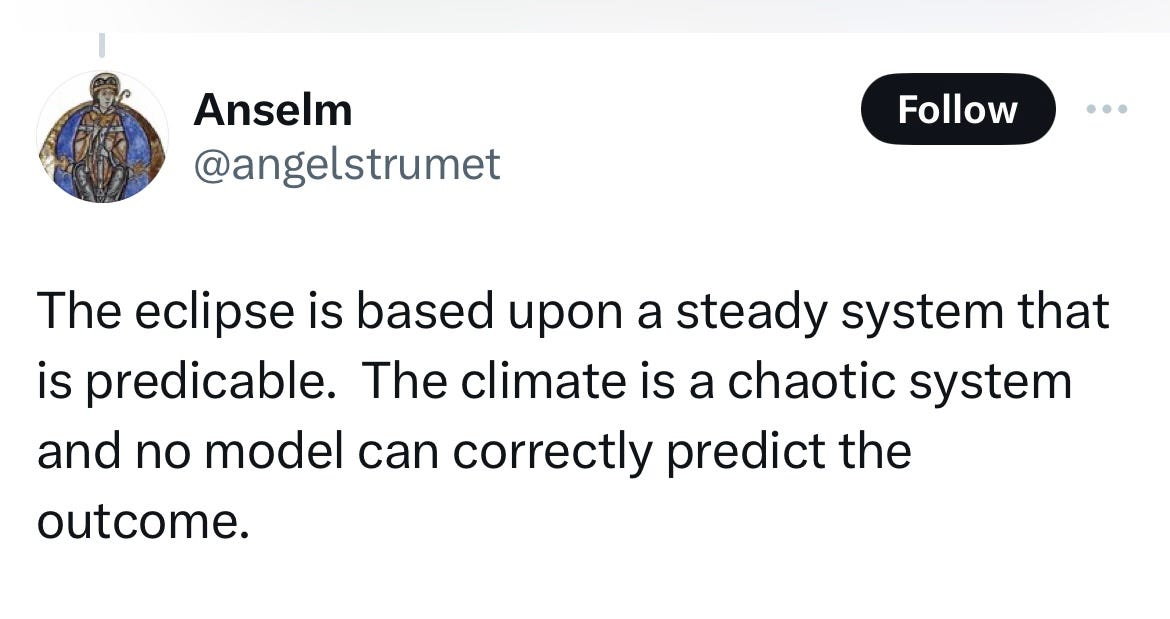
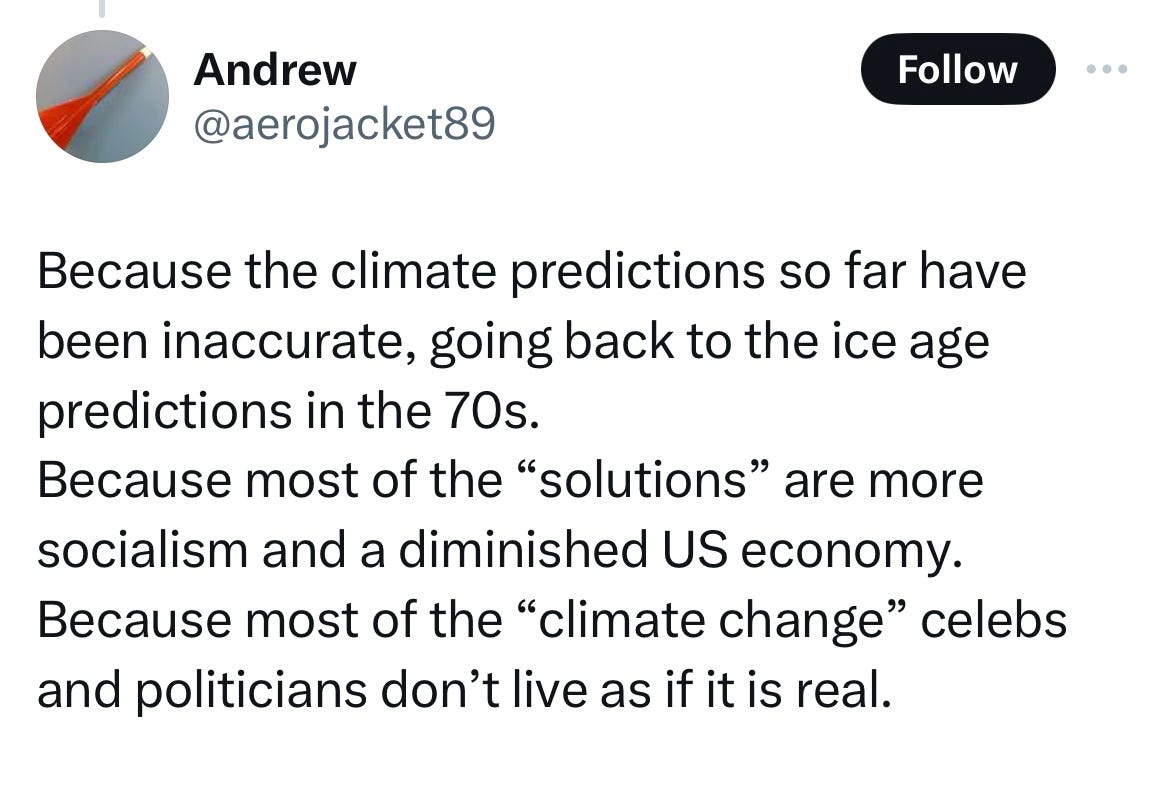
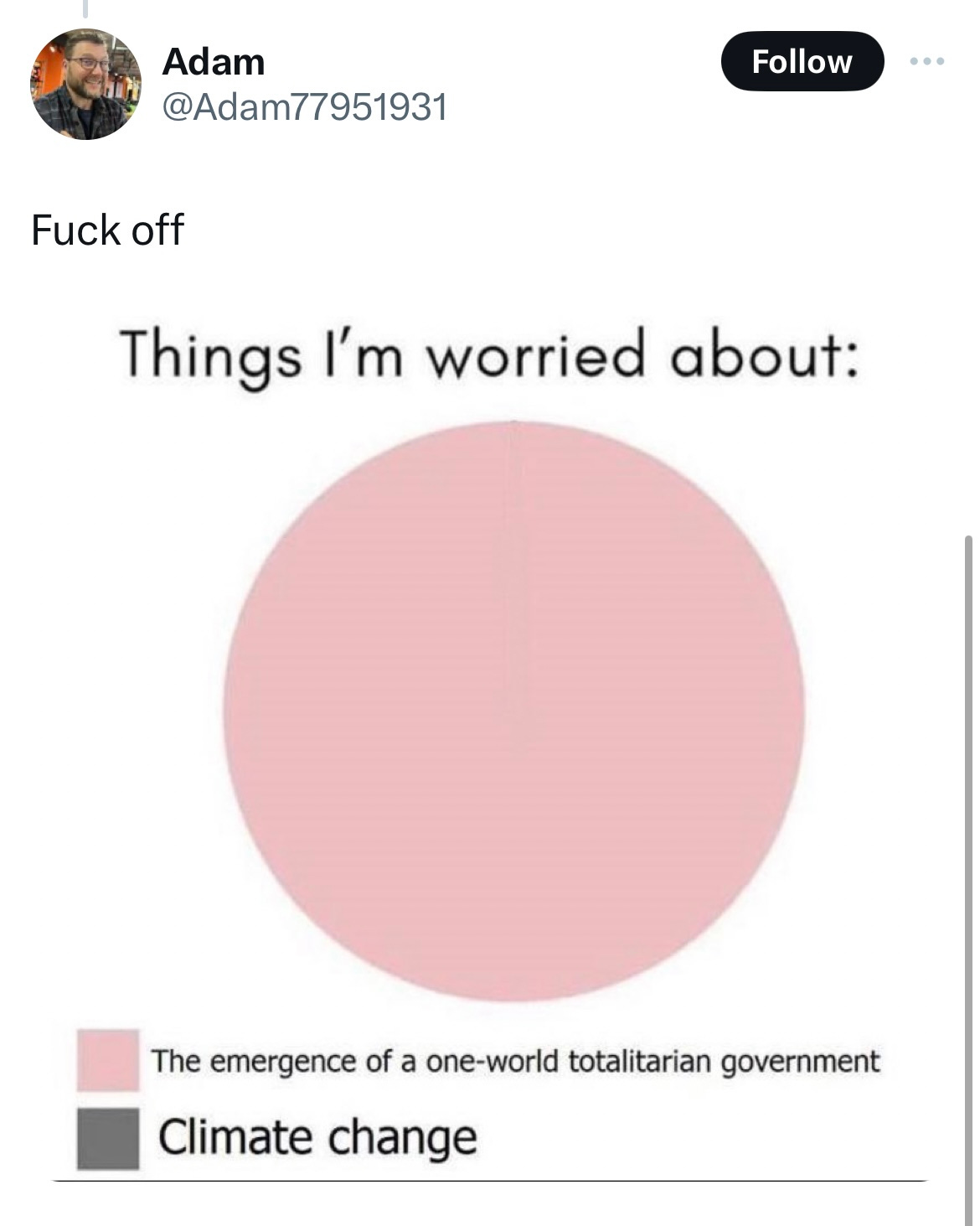


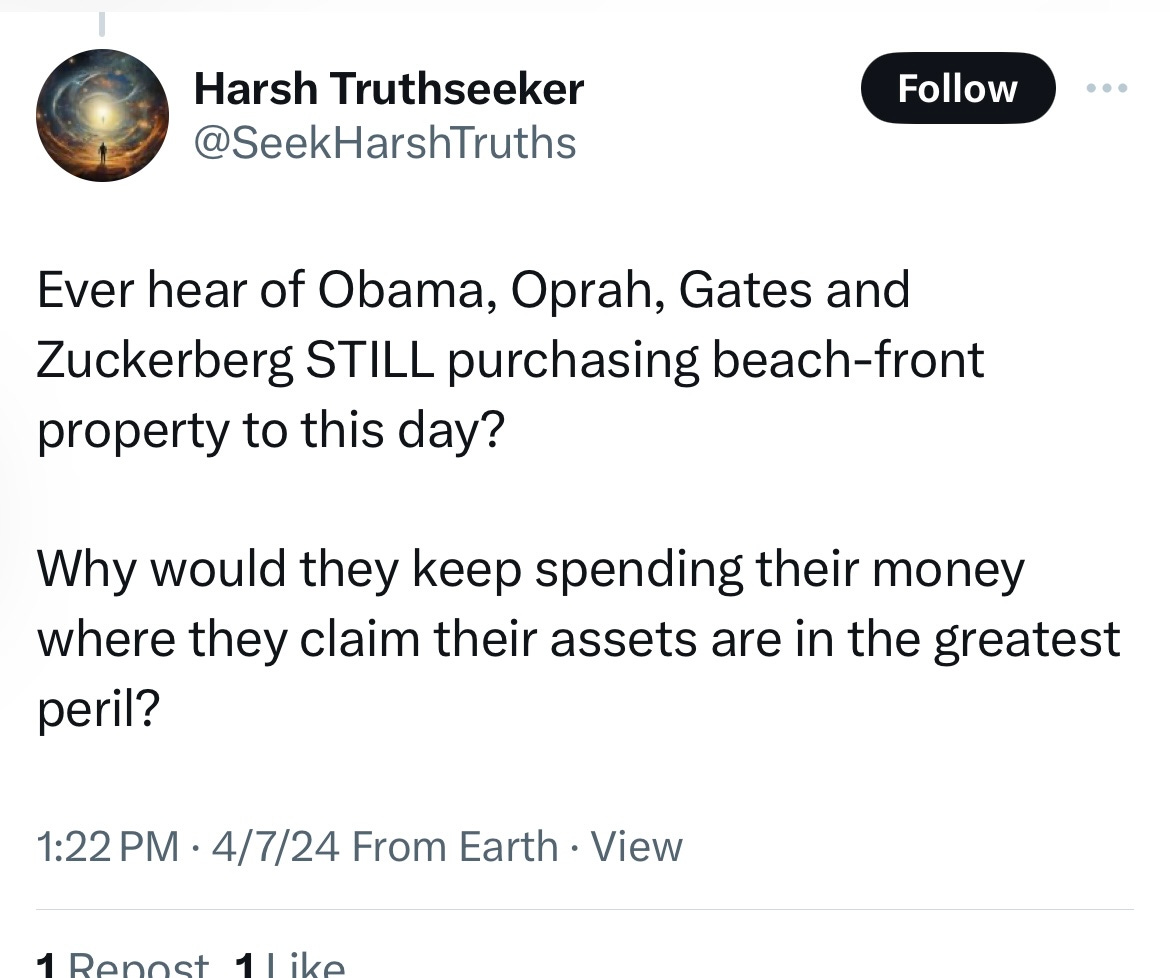
The reaction was so intense, I decided to retweet my question to learn even more. Yes, as part of my own research, I was willing to endure even more tweets calling me a moron and an idiot and “pedo” for even asking my question. Bold, I know:


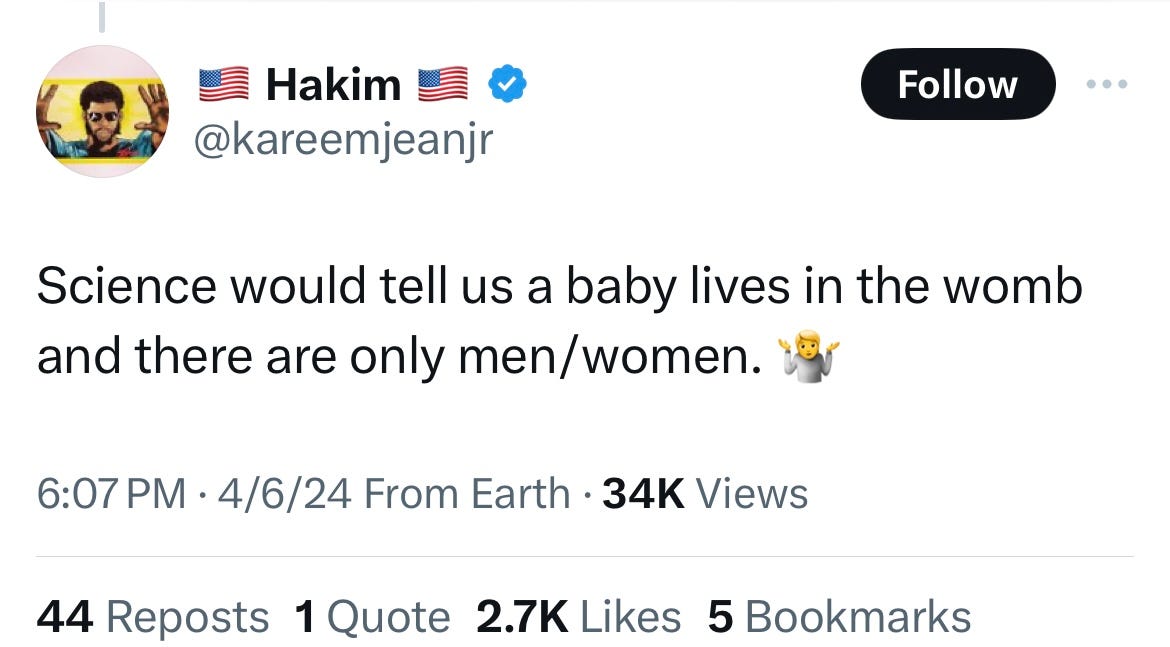
Feeling so outnumbered by Twitter accounts that reject the fact and science of climate change, I took one final step.
Like a good scientists, I wanted to test my results. See if they were replicable.
So I asked my question on other social media fora. I went to Facebook and posted it there. I went to Threads and posted it there.
The question again took off. Lots of shares and re-posts. Apparently it’s a question that generates conversation. But the reaction was noticeably different.
But…while I got a few of the responses along the lines of those above, it was a very small percentage. Far more simply said: “Good question.” Or postulated that big oil had spent millions to sow disinformation among the population. Or other such answers.
My Threads ratio was 5,000 likes and reposts versus 313 comments, which were mostly positive. In other words, these folks largely believed that the science of man-made climate change is real, and a concern. And they too wonder why it is not believed by people who take other science seriously.
My results on Facebook were similar.
So that was my question, and the answer I got. And it definitely was clarifying.
You’re welcome to draw your own conclusions from my dive into this world. But I’ll make two quick observations:
First, I tweeted my original question with a firm belief that man-made climate change is real; that recent spikes in temperature are particularly alarming; that events are generally following predictions we’ve heard about in the past; that we must act; and that the scientific community is in strong consensus about all this. But faced with that overwhelming response, it made me think about the basis of my own beliefs. Have I been missing out on all the countervailing data these people were all bringing up? Without time to read back through all the things that led to my own beliefs (going back to those college courses), I went to Perplexity, an AI search engine, to ask for a quick summary:
Answer: “The scientific consensus is that human activities, primarily the burning of fossil fuels, are the dominant cause of global warming and climate change observed over the past century. Surveys of climate scientists and analyses of the scientific literature have found overwhelming agreement on this point:
The evidence for human-caused climate change is considered "unequivocal" and "incontrovertible" by major scientific organizations worldwide, including the national science academies of all the major industrialized nations. There is no credible scientific body that disputes the overwhelming consensus on this issue. Human activities, especially the emission of greenhouse gases, are now recognized as the dominant driver of the rapid warming observed over the past several decades, which is unprecedented in the history of modern civilization. Human-caused climate change is considered an established scientific fact based on over a century of evidence and research.”
Question 2: “Are the scientific predictions of climate change and global warming proving to be accurate?”
Answer: “The scientific predictions of climate change and global warming are proving to be largely accurate, according to the evidence presented in the search results:
Overall, the search results indicate that mainstream climate models have demonstrated a strong track record of accurately projecting global temperature changes and other climate impacts, providing confidence in the reliability of climate science predictions
Phew. That's what I thought! (I can only imagine what those Twitter responses would have to say about my method here).
But then I imagine a whole lot of others, worried about what they’ve heard on the news about rising temperatures, asking a similar question about climate change as I did…then stumbling into the parade of highly consistent (verified!) blue check responses I got, the consistency of it all, the memes and specifics, and walking away thinking: at the very least, that climate change is highly contested. Unknowable. Corrupt. “Pseudo science.” Or just flat out wrong.
They might even think they were ignorant for even wondering, embarrassed for even asking the question. Maybe they’d never ask it again.
And think about this: if even one of the dozen or so arguments I summarized strikes them as credible, that’s possibly the end of their belief that man-made climate change is real, or something to be concerned about.
Or imagine people without a strong opinion of climate change, but who have other strong beliefs (about politics, cultural issues, etc.). Beliefs that regularly place them in the middle of that ocean of blue checks I swam through in recent days. It’s pretty clear what they will conclude about climate change after very little time, because people who share their beliefs on other issues are all saying the exact same thing about climate change.
Second, this is clearly bigger than climate change.
While I haven’t experienced it myself, it’s pretty clear that questions similar to the one I tweeted—phrased just the right way—would trigger an endless set of similar blue-check replies on other topics, from vaccines to whether Trump won in 2020 to whether January 6 insurrectionists are patriots to other voting controversies to Ukraine/Russia. Data, GIFs, graphics, consistency.
And that disturbing reality explains so much of what’s happening in our country today. It helps explain how Trump’s lie about winning 2020—which first started as an outrageous assertion believed by very few even in his party—could evolve into the strong majority opinion of GOP voters. Or how the appalling acts of January 6—ones McCarthy and Stefanik and Vivek and others called out at the time—can be converted four years later into acts of heroism that deserve pardons. Or how Trump himself evolved from pushing for the COVID vaccine in 2020 to now saying, if elected, he won’t fund schools that require any vaccines for kids.
Look ay my 9,000 replies, and it’s pretty clear how overwhelming the gaslighting can be on all of these matters. How effective.
And as we get closer to to this year’s election, we need to be prepared for ALL of it.
As I close, though, let me ask one last time:











